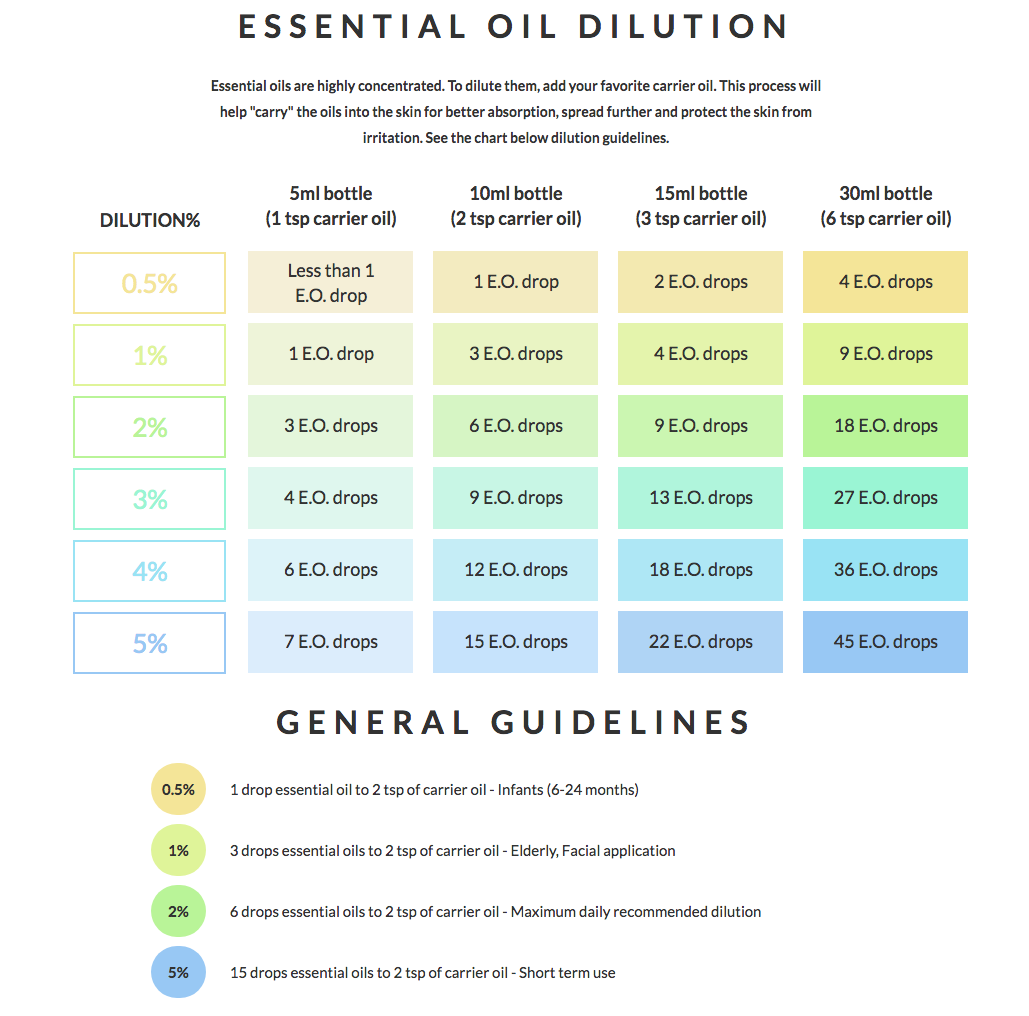The Most Common Mistakes When Using Essential Oils
As many may assume, in this business essential oils are something that I use on a daily basis. It is not only important to be educated on which essential oils to use while working on clients, but also when using them at home. Here are some common mistakes people make.
Dilution Ratios
Most essential oils need to be diluted. What does that mean? Since essential oils are so concentrated, applying them directly to the skin can result in irritation and in extreme cases, burns. A carrier oil is needed to dilute essential oil so that it can be absorbed into the skin safely. Some examples of carrier oils are coconut oil, jojoba oil, almond oil, grape seed oil, and many more. Each carrier oil has its own benefit to the skin and hair. Considering these benefits will help determine which to use.
According to the National Association of Holistic Aromatherapy (NAHA), a safe dilution ratio for babies is .5 to 1 percent. What does that look like? If you have a substance measuring at 100mL, 99mL would be your carrier oil and 1mL would be your essential oil. So, if you are making a 10mL roller of an essential oil , that is 2 tsp of carrier oil and 1 drop of essential oil. For adults, it’s 2.5 to 10 percent. Here is an easy to use dilution chart:
Chart borrowed from Rocky Mountain Oils at https://www.rockymountainoils.com/dilution-rate/
Safety In Children and Pregnant Women
Many believe because essential oils are “natural” they are safe for anyone to use. This can be a problem when dealing with children and pregnant women. For children under 6 years, it is recommended to avoid peppermint, wintergreen or birch. There are different types of eucalyptus, but only one of them is found to be safe in children- eucalyptus radiata. If you’re unsure of which type of eucalyptus you have, it’s best to avoid altogether. The NAHA also recommends not using any essential oils under the age of 3 months.
In pregnant women, essential oils are not recommended for use until your second trimester. While many are safe to use after the second trimester to help with pregnancy, there are some that con cause uterine contractions which can result in preterm labor, or more frightening, miscarriage. Examples of these oils include: cinnamon, clove, and rosemary. Click here to see a full list of oils that are unsafe for pregnancy.
Ingesting Essential Oils
There’s a lot of controversy behind ingesting oils. Some feel strongly it works while others feel strongly that it can be dangerous. Personally, it is not something I am willing to risk. There’s no scientific evidence supporting either view, however, essential oils can be dangerous whether ingesting, inhaling, or exposing topically if you’re not educated properly.
The NAHA states:
“Do not take essential oils internally without appropriate advanced aromatherapy education and understanding of the safety issues involved in doing so… To learn more, we recommend you receive education from a NAHA approved school. NAHA is dedicated to promoting education in this area so that internal use is better understood, and if done, is performed safely and effectively.”
The biggest takeaway I hope you get from this post is not me telling you what you should or should not do, but to show you that it is important to really research before using oils. Your research should be backed by evidence and not just word of mouth. Also, realize that every person is different. Just because it works for one person, does not mean it’ll work for you. And don’t forget, dilution is necessary for safety reasons! I hope you found this helpful!

